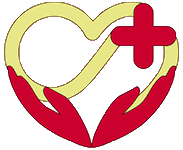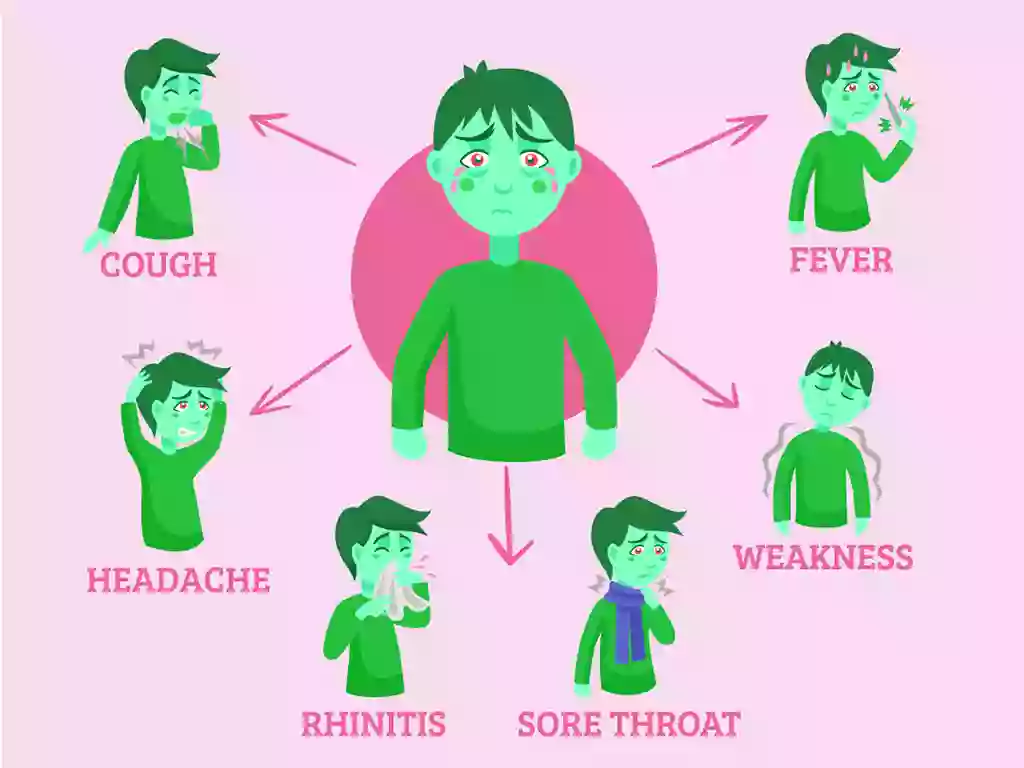The flu, also known as influenza, is a common viral infection that affects the respiratory system, including your nose, throat, and lungs. It can spread easily from person to person and is more serious than a regular cold. While many people recover from the flu within a week or two, it can lead to severe complications, especially in vulnerable groups like the elderly, young children, and people with weakened immune systems. In this article, we’ll explore the flu symptoms and how to treat them.
Symptoms Of the Flu:
Flu symptoms usually come on suddenly and can vary in intensity. Common symptoms include:
Fever
A high temperature, often above 100.4°F (38°C), is one of the most common signs of the flu. Some people may not have a fever, but it is typical, especially in the early stages.
Chills And Sweats
Many people with the flu experience chills and may sweat excessively, even when they are not doing physical activity.
Cough
A dry, persistent cough is common with the flu and can last several days or weeks after other symptoms go away.
Sore Throat
You may feel pain or irritation in your throat, making swallowing difficult.
Body Aches
Muscle and joint pain, especially in your back, arms, and legs, are common flu symptoms. These body aches can make it uncomfortable to move.
Fatigue And Weakness
Feeling extremely tired and weak, even after a full night’s sleep, is common with the flu. This fatigue can last for a few days to weeks.
Headache
A headache often accompanies other flu symptoms like fever and fatigue.
Nasal Congestion Or Runny Nose
Although the flu mainly affects the respiratory system, some people may experience a stuffy or runny nose.
Shortness Of Breath Or Chest Pain
In more severe cases, the flu can cause breathing difficulties or tightness in the chest. This symptom may need medical attention.
Treatment For The Flu
There is no cure for the flu, but you can take several steps to treat the symptoms and recover faster. Here’s how to manage the flu:
Rest And Hydration:
Rest
Your body needs time to fight the flu, so it’s important to rest and take it easy. Avoid strenuous activities and allow your body to heal.
Hydration
Drinking plenty of fluids, such as water, herbal teas, and broths, can help keep you hydrated, which is important when you have a fever and are sweating more than usual.
Over-the-Counter Medications:
Pain Relievers
Medications like acetaminophen (Tylenol) or ibuprofen (Advil) can help reduce fever, body aches, and headaches. Follow the dosage instructions to avoid any side effects.
Cough Suppressants
If your cough is bothersome, you can try over-the-counter cough syrups or lozenges to soothe your throat and ease the cough.
Decongestants
For nasal congestion, decongestants can help clear your sinuses, making it easier to breathe.
Antiviral Medications
In some cases, especially if you are in a high-risk group (like young children, elderly, or people with chronic conditions), your doctor may prescribe antiviral medications such as oseltamivir (Tamiflu). These medications are most effective when taken within the first 48 hours of flu symptoms and can help reduce the severity and duration of the flu.
Natural Remedies:
Honey And Warm Water
Honey can help soothe a sore throat and reduce coughing. Try mixing a spoonful of honey in warm water or tea.
Ginger And Garlic
Both ginger and garlic have natural antiviral properties and can help support your immune system. You can add them to your meals or drink ginger tea for relief.
Steam Inhalation
Breathing in steam from hot water can help relieve nasal congestion and make it easier to breathe.
Humidifiers
Using a humidifier in your room adds moisture to the air, which can help reduce dry throat and nasal congestion. It’s especially useful if the air in your home is dry during the winter months.
Gargle With Salt Water
Gargling with warm salt water can help reduce throat pain and irritation. Mix half a teaspoon of salt in a cup of warm water and gargle a few times a day.
Preventing The Flu:
While treatment is important, preventing the flu is even better. Here are some tips to avoid getting the flu:
Get the Flu Vaccine
The annual flu vaccine is one of the most effective ways to protect yourself from the flu. It reduces the risk of catching the flu and can make symptoms less severe if you do get it.
Wash Your Hands Frequently
Regular hand washing with soap and water helps stop the spread of flu viruses. Wash your hands for at least 20 seconds, especially after coughing, sneezing, or being in public places.
Avoid Close Contact With Sick People
Flu spreads easily from person to person through droplets when someone coughs or sneezes. Try to avoid close contact with people who are sick, and stay home if you’re not feeling well.
Practice Good Hygiene
Cover your mouth and nose with a tissue or your elbow when you cough or sneeze to prevent spreading germs. Dispose of tissues properly and wash your hands afterward.
Boost Your Immune System
Eating a balanced diet, getting regular exercise, staying hydrated, and managing stress can all help keep your immune system strong, reducing your chances of catching the flu.
When To See A Doctor:
Most cases of the flu can be managed at home with rest and over-the-counter treatments. However, you should see a doctor if:
– Your symptoms get worse or last longer than a week.
– You have trouble breathing or severe chest pain.
– You experience a very high fever that doesn’t go down with medication.
– You are in a high-risk group, such as being pregnant, elderly, or having a weakened immune system.
Conclusion
The flu is a common illness that can make you feel unwell for a week or more, but most people recover with proper rest and care. Recognizing the symptoms early and taking steps to treat them, like staying hydrated, taking over-the-counter medications, and resting, can help you recover faster. Preventing the flu through vaccines, hygiene practices, and boosting your immune system is also key to staying healthy.


